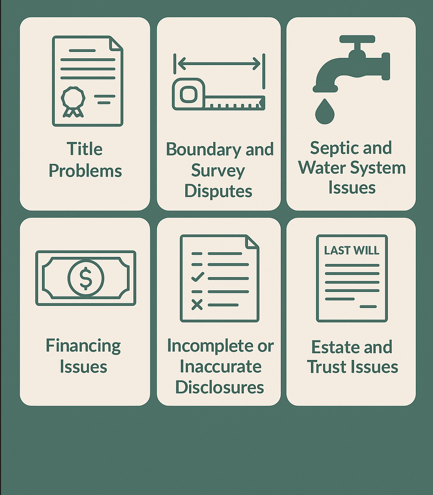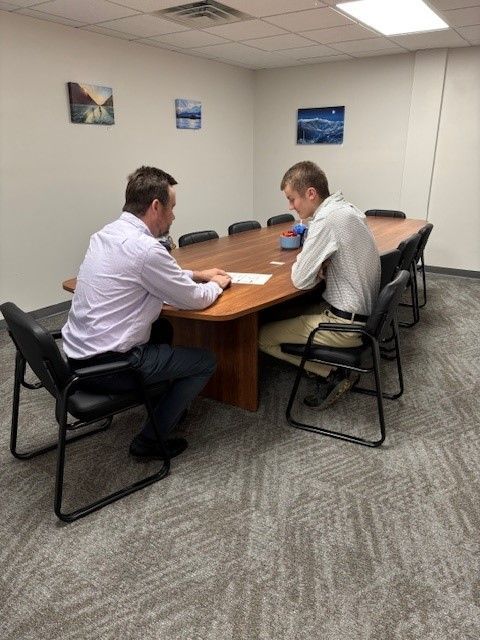Defective Titles: Ensuring Your New Real Estate Is Really Yours

When you buy land or a house, the property's title is the official record of your rights as its owner. But could that title have hidden problems? Yes. These are called title defects. What are defects? What might they look like? And how will a good real estate attorney help you solve them? Here's what every home buyer needs to know.
What Are Title Defects?
A defective title is one which cannot be legally transferred to a new owner due to other claims on the property. The reasons that there may be another claim vary, but they all have the common result of making it harder or impossible to get clear and unobstructed ownership of your real estate. Defects must generally be resolved, sometimes by a judge in court, and a new title may need to be drawn up.
What Kinds of Defects Exist?
Certainly, one of the most common reasons that a title can be problematic is that it contains a material error or omission. It could be a missing number, transposed digits in the address, the wrong name on the title, or incorrect property boundaries. If the problem is simply an error, it may be relatively easy to get it fixed by the issuing office.
A creditor claim on the title is known as a lien. Liens are placed on real estate titles in order to ensure that a party gets paid what they're owed in relation to that property. Two common liens are those placed on a property by a mortgage lender and those which stem from building work on the property. Generally, the party which placed the lien can remove it.
Easements are a fact of life for most properties. Utility companies and local governments need guaranteed access to certain parts of private property to maintain services or build roads, for instance. A neighbor might need access through your land to get to theirs. Or a decades-old barn might be sitting on your side of the fence line. But an easement affects the boundaries of the property and it could create a dispute.
The purpose of the title is to clearly and legally define exactly what you own. So its boundaries must be inarguably stated and agreed upon. However, not all titles ensure this. A survey may reveal that the boundaries aren't the same as what's in the title. A neighboring landowner might dispute the borders. Or the title simply may not be specific enough.
While rare, there is also the problem of fraud. Outright fraud includes fake titles, using a false identity to represent oneself as the owner, or other forged documents. These are serious issues, and they could even turn into criminal matters. But it has the effect of potentially torpedoing your purchase.
What Can You Do About Defective Titles?
All this may sound alarming, but title defects are reasonably rare. The first step in protecting yourself is to find them. A qualified real estate lawyer will conduct what's known as a title search to determine if there are any possible problems with your purchase.
As mentioned above, some title defects can be fixed through clerical means and reissuing. However, you may need to work with a lienholder or the current owner. Finally, a judge can review your case and issue an order clearing the title of its defects if appropriate.
Where Should You Start?
Avoid any delays or even termination of your Vermont real estate purchase by working with the legal professionals at
Peet Law Group. We'll help you understand every step of your real estate transaction, identify any issues early, and get them resolved so that you can move forward. Call to make an appointment today.










